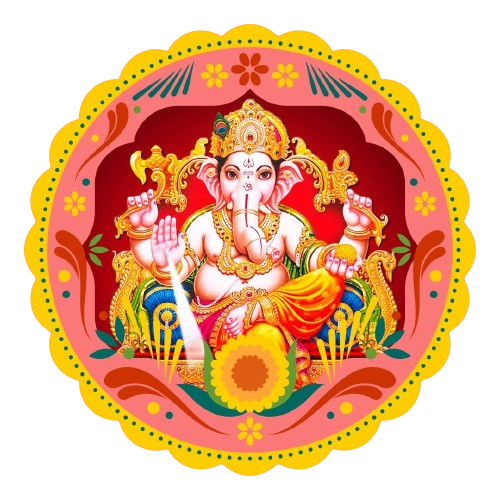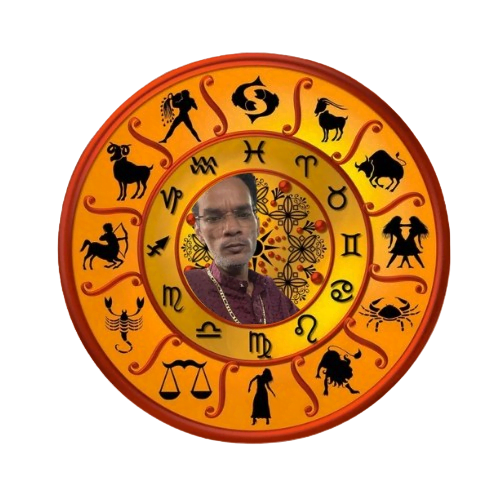Panchang Today: Aug 30, 2024
Panchang, an ancient Hindu calendar, holds profound significance in Hindu culture. Derived from the Sanskrit words “Panch” meaning “five” and “Ang” meaning “part,” Panchang refers to the five components that constitute a traditional Hindu calendar: Tithi (lunar day), Vara (weekday), Nakshatra (star), Yoga, and Karana. It serves as a comprehensive guide, offering insights into auspicious and inauspicious timings for various activities, aligning life with celestial energies.

Today’s Hindu Panchang
हिंदी के लिए यहां पर क्लिक करें
Panchang Today: Aug 30, 2024
Good morning and happy Friday!
Here is the daily Panchang for today:
Date: 30th August 2024
Kali Yuga Year: 5126
Vikram Samvat: 2081
Shaka Samvat: 1946
Samvatsara: Shri Kalyukt
Ayana: Dakshinayan
Gola: Uttar
Ritu: Sharad
Month: Bhadrapada
Paksha: Krishna
Tithi: Dwadashi till 2:25 AM* / Trayodashi
Day: Friday
Nakshatra: Punarvasu till 5:56 PM / Pushya
Chandra Rashi: Mithuna till 11:34 AM / Karka
Yoga: Vyatipata till 5:45 PM / Variyan
Karana: Kaulava till 1:57 PM / Taitila till 2:25 AM* / Gar
*Note: The times marked with (*) indicate the time after midnight until sunrise.
Sunrise and Sunset Details:
- Sunrise: 6:12:30 AM
- Sunset: 6:51:02 PM
- Day Duration: 12 Hours 38 Minutes 32 Seconds
- Night Duration: 11 Hours 21 Minutes 51 Seconds
- Moonset: 4:47:27 PM
- Moonrise: 3:27:50 AM
Rahu Kaal: 10:57 AM to 12:32 PM (Inauspicious)
Yamaganda: 3:41 PM to 5:16 PM (Inauspicious)
Gulika: 7:47 AM to 9:22 AM
Abhijit Muhurat: 12:06 PM to 12:57 PM
Panchak: Not applicable today
Havan Muhurat (Agni Vasa): Not applicable today
Disha Shool: West Direction
Remedy for Disha Shool: Consume barley before travel.
Special Timings and Muhurats:
- Abhijit Muhurat: The time around midday (approximately 12 minutes before and after) is considered Abhijit Muhurat, which is auspicious, except on Wednesday.
- Brahma Muhurat: The 1.5 hours before sunrise is known as Brahma Muhurat, considered ideal for meditation and spiritual activities.
- Pradosh Kaal: The 45 minutes before and after sunset is known as Pradosh Kaal, suitable for worshipping Lord Shiva.
- Godhuli Kaal: The 12 minutes before and after sunset is known as Godhuli Kaal, considered auspicious for starting new ventures.
Bhadravaas Considerations:
- Bhadra in Mesha, Vrishabha, Mithuna, and Vrischika Rashis are considered in Svarga (heaven) and are auspicious.
- Bhadra in Kanya, Tula, Dhanu, and Makara Rashis are in Patala (netherworld) and are also considered auspicious.
- Bhadra in Kumbha, Meena, Karka, and Simha Rashis are considered in Mrityuloka (earthly realm) and are inauspicious for any significant activities.
Daily Sunrise Lagna and Planetary Positions:
- Lagna: Simha 12°40′ Magha 4
- Sun: Simha 12°57′ Magha 4
- Moon: Mithuna 27°12′ Punarvasu 3
- Mercury: Karka 27°18′ Ashlesha 4
- Venus: Kanya 6°24′ Uttar Phalguni 3
- Mars: Mithuna 2°16′ Mrigashira 3
- Jupiter: Vrishabha 24°34′ Mrigashira 1
- Saturn: Kumbha 22°37′ Purva Bhadrapada 1
- Rahu: Meena 13°56′ Uttar Bhadrapada 3
- Ketu: Kanya 13°56′ Hasta 2
Daytime Choghadiya:
- Chanchal: 6:13 AM to 7:47 AM
- Labh: 7:47 AM to 9:22 AM
- Amrit: 9:22 AM to 10:57 AM
- Shubh: 12:32 PM to 2:07 PM
- Chanchal: 5:16 PM to 6:51 PM
Nighttime Choghadiya:
- Labh: 9:42 PM to 11:07 PM
- Shubh: 12:32 AM to 1:57 AM
- Amrit: 1:57 AM to 3:22 AM
- Chanchal: 3:22 AM to 4:48 AM
Special Note: In astrology, when an auspicious and an inauspicious yoga occur together, the auspicious yoga takes precedence.
Auspicious Shiva Vasa Days:
- Shukla Paksha: 2nd, 5th, 6th, 9th, 12th, 13th Tithis.
- Krishna Paksha: 1st, 4th, 5th, 8th, 11th, 12th Tithis.
Nakshatra and Related Information:
- Today’s Birth Nakshatra (Punarvasu – 3rd Pada till 11:34 AM): Suggested name syllable: “Ha”
Rashi: Mithuna, Element: Silver - After 11:34 AM till 5:55 PM: Punarvasu – 4th Pada, Suggested name syllable: “Hi”
- After 5:55 PM till 12:18 AM: Pushya – 1st Pada, Suggested name syllable: “Hu”
- Post-midnight: Pushya – 2nd Pada, Suggested name syllable: “He”
Rashi: Karka, Element: Silver
Today’s Special Observances:
- Fasting: Aja Ekadashi (Nimbark tradition), Govatsa Dwadashi (Bachh Baras)
- Festival: Paryushan Parv begins (Jain tradition)
- Ongoing: Chaturmas continues
- Special Days: National Small Industry Day, World Whale Shark Day
Astronomical Events:
- Punarvasu Ravi: 3:56 PM
- Nakshatra Vehicle: Mouse (medium chance of rain)
Symbolic Information for the Next Day (31st August 2024):
- Tithi: Bhadrapada Krishna Trayodashi
- Day: Saturday
- Fasting: Shani Pradosh
- Ongoing: Chaturmas continues
- Special Days: World Sanskrit Day, World African Descent Day
I hope this detailed Panchang helps you!ndu traditions.
_____________Today Special ____________
Panchang Today: Aug 30, 2024
10 Differences Between Religion and Astrology That Everyone Should Know
Often, religion and astrology are interlinked or confused with each other, leading to various misunderstandings. While they do have interconnections in some areas, they are distinct in many ways. Here are 10 differences between religion and astrology:
- Path of Spirituality vs. Tool for Ease: Religion is the path of spirituality, while astrology is a tool to make that path easier. This is why astrology is referred to as the “Eye of the Vedas.”
- Inner World vs. Outer World: Religion is the science of the inner world, whereas astrology is the science of the outer world.
- Search for Self vs. Search for Life: Religion is the search for the self, while astrology is the search for life.
- Formless God vs. Manifest God: In religion, God is seen as formless, while in astrology, God takes a manifest form, represented by what is visible.
- Clear Path vs. Future Prediction: Religion provides a clear path to follow, whereas astrology predicts the future.
- Origin of Astrology and Religion: Those who study astrology believe that astrology existed before religion; it was the ancient religion where humans recognized the powers of planets and stars and began to worship them. On the other hand, those who study religion believe that astrology was born after the origin of religion.
- Determination of Rituals vs. Timing of Rituals: Religion determines that one should perform rituals like yajnas, pujas, fasting, and meditation. Astrology, on the other hand, dictates when and how these should be performed. Without astrology, no auspicious or sacred ceremony is considered complete.
- Means vs. End: Astrology deals with the movements of planets and stars, the effects of the sun and moon, days, fortnights, auspicious times, ascendants, solstices, and more. Religion, however, is the end goal.
- Karma vs. Karma’s Outcome: Religion tells us how to perform our actions (karma), while astrology predicts the results of those actions—what our destiny holds and what constitutes good karma.
- Steadfastness vs. Nature’s Course: Religion advises becoming steadfast (sthitaprajna), while astrology tells us what the nature and course of our actions and the environment will be.
Religion and Astrology: Astrology is considered the knowledge of planets, stars, time, ascendants, auspicious times, days, nights, lunar phases, fortnights, solstices, years, ages, cosmic time, and more. In other words, astrology is the science of understanding the external world. Religion, however, is the means of understanding the inner world. It involves the study and practice of concepts such as the soul and the supreme soul, ethical rules, meditation, daily prayers, deities, charity, pilgrimage, karma, and rituals.e fulfillment of all desires.merous spiritual and material rewards.
हिंदी के लिए यहां पर क्लिक करें
Note:- For more such information join our WhatsApp channel or Telegram channel. Thank you
Category
All Puja Vidhi, All Chalisa, Astrology, Feng Shui Tips, Horoscope, Love Horoscopes, Muhurta, Panchang, Paranormal, Upaya, Unique, Vastu Dosh
The Relevance of Panchang in Daily Life
In contemporary times, Panchang remains an invaluable tool, guiding millions in making crucial decisions concerning weddings, engagements, travel, business ventures, and religious ceremonies. It’s not merely a calendar but a repository of cosmic wisdom, believed to influence the outcomes of endeavors undertaken during specific astrological configurations.
Tithi: The Lunar Day
Tithi signifies the phase of the moon and plays a pivotal role in determining auspicious timings for rituals and ceremonies. It consists of 30 Tithis, each representing a specific angle between the sun and moon. From Pratipada (first day) to Amavasya (new moon) and Purnima (full moon), each Tithi holds unique significance, impacting human emotions, actions, and spiritual endeavors.
Vara: The Weekday
Vara refers to the days of the week, each associated with a celestial deity. Understanding the influence of different weekdays on specific activities aids in optimizing productivity and success. For instance, Monday, ruled by the moon, is auspicious for initiating new ventures, while Saturday, governed by Saturn, is conducive to spiritual practices and introspection.
Nakshatra: The Lunar Mansion
Nakshatra denotes the 27 lunar mansions traversed by the moon during its monthly cycle. Each Nakshatra exerts a distinct influence on human affairs, influencing personality traits, career choices, and relationship dynamics. By aligning actions with favorable Nakshatras, individuals can enhance prosperity and well-being.
Yoga: The Combination
Yoga signifies the auspicious or inauspicious combinations formed by the positions of the sun and moon. There are 27 Yogas, each associated with unique attributes and effects. Harnessing the energy of propitious Yogas empowers individuals to achieve success and fulfillment in their endeavors.
Karana: The Half of a Lunar Day
Karana represents half of a Tithi and influences the commencement of activities. With 11 Karanas classified into two categories – fixed and movable, it’s crucial to select an appropriate Karana for initiating tasks to ensure favorable outcomes.
Panchang Today: Aug 30, 2024
Tithi Analysis
- Krishna Paksha Dwadashi: Ideal for seeking spiritual enlightenment and engaging in charitable acts.
- Rohini Nakshatra: Favorable for artistic pursuits, creativity, and nurturing relationships.
- Vriddhi Yoga: Conducive for growth-oriented activities and financial investments.
- Taitila Karana: Suitable for activities requiring endurance and perseverance.
Harnessing the Power of Panchang
Incorporating Panchang insights into daily life fosters harmony with cosmic rhythms, enabling individuals to navigate challenges with wisdom and grace. By leveraging the guidance provided by Panchang, one can optimize opportunities for success and fulfillment in all endeavors.
Conclusion
Panchang, with its intricate wisdom and celestial insights, serves as a beacon of guidance in the journey of life. Embracing its teachings empowers individuals to tread the path of prosperity, aligning their actions with cosmic energies for holistic well-being.

